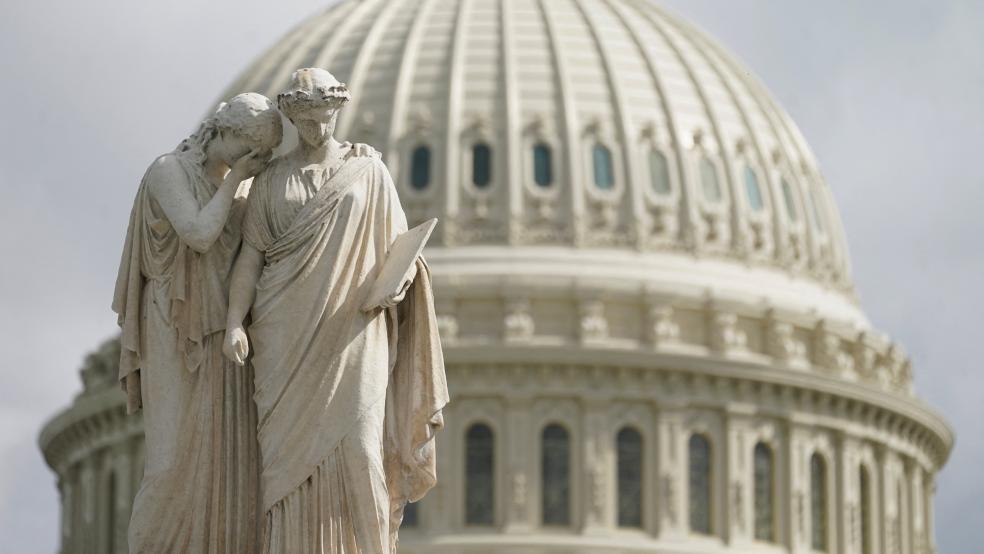It’s been just five days since Congress averted a government shutdown by extending federal funding through November 17, but concern is already growing that the Republican revolt against former Speaker Kevin McCarthy and the ongoing turmoil in the House will make a shutdown harder to avoid next month.
As the race to replace McCarthy heats up, The Washington Post’s Jeff Stein and Jacob Bogage write that the risks of a shutdown appear to have increased, with the GOP hardliners who ousted the speaker looking for “impossibly large concessions from the White House and Democratic-controlled Senate.”
The ongoing chaos in the House means that bipartisan deals will likely be even harder to reach and that lawmakers will have less time — perhaps about 30 days — to work on agreements to fund the government.
“It becomes substantially harder to do a government spending deal, because the message has been sent that Republicans should not rely on Democrats to pass any bills,” Brian Riedl, a budget expert at the conservative-leaning Manhattan Institute think tank, told the Post. “Things can always get worse. The no-compromise fringe has been strongly empowered and essentially has a veto over House Republican policy — which can’t be squared with what Democrats and the White House want.”
A newly chosen speaker may look to appease the rebels who ousted McCarthy and stick to a hard line on a government spending bill, a partisan approach that the former speaker backed away from at the eleventh hour. “Senators are worried about who will succeed McCarthy and whether that successor will be so beholden to a small group of conservatives that it will be close to impossible to pass spending legislation before government funding runs out before Thanksgiving,” The Hill’s Alexander Bolton reports.
But for whatever leverage the far-right rebels may have — and they could still wind up with less under a new speaker and potentially new House rules demanded by moderates — the hardliners also don’t have enough votes to enact their demands on spending and other priorities into law.
“This was the message the right was trying to send: We’ll do everything on our own, and we will depose you if you work with Democrats,” Bill Hoagland of the Bipartisan Policy Center told the Post. “But what are they going to do when the Senate comes back with different numbers? It doesn’t work, because then you will have government shutdowns and even more chaos. It’s not a strategy that makes sense.”





